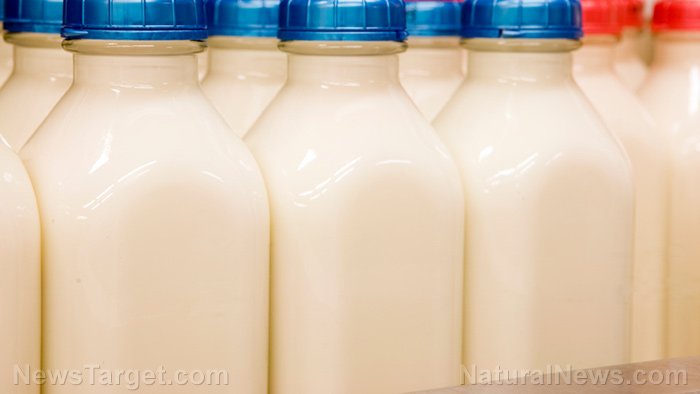Be careful of what you buy: not all “organic” milk is really organic, report reveals
05/12/2017 / By Frances Bloomfield

Before you purchase an expensive carton of organic milk, consider the fact that it might not be that different from all other milks filling the dairy aisle. A damning investigative report by the Washington Post sheds some light on an industry that’s massive, lucrative, and, if the report is anything to go by, underhanded.
In 2016, a Post reporter visited a Greeley-based production facility belonging to Aurora Organic Dairy, a Colorado company that supplies organic milk to grocery chains like WalMart and Costco. During his eight-day visit, he noticed a few things about the way the production facility was managing its day-to-day operations.
For one, the reporter claimed that no more than a few hundred cows—out of the facility’s 15,000—were grazing in the pastures at any given time. According to the guidelines set in place by the United States Department of Agriculture (USDA), cows that are organically-certified must be allowed to graze no less than 120 days in a calendar year.
In another instance, the reporter had Virginia Tech scientists test the chemical makeup of Aurora organic milk. The results showed that the so-called “organic” milk was similar to conventional milk. Another rule from the “Guidelines for Organic Certification of Dairy Livestock” dictates that organic cows must be fed grains and forages that contain no antibiotics, GMO-derived products, synthetic preservatives, and animal by-products. Conventional dairy cows are not required to comply with these standards, and it shows in the milk these cows produce. Milk from conventional, grass-fed cows contains elevated levels of conjugated linoleic acid (CLA) and alpha-linolenic acid; by contrast, other milk substances like linoleic acid tend to be at lower levels. The tests conducted by the Virginia Tech scientists revealed that Aurora Organic Dairy’s milk had CLA and linoleic acid levels that were on par with conventional milk. Although the alpha-linolenic was higher than conventional milk, it still ranked below what could be considered “USDA Organic”.
Moreover, it was discovered that the USDA allows dairy farmers to hire their own inspectors. The USDA is not obligated to inspect farms like Aurora Organic Dairy; instead, they provide a list of licensed, private companies from which farmers can select inspectors. The inspectors that the farms hire don’t visit the farms spontaneously, however. According to the report, a mere five percent of inspections are impromptu while the rest are arranged days or even weeks in advance. Furthermore, inspections sent to the USDA are reviewed every two-and-a-half years on average.
The inspectors that were recently hired by Aurora Organic Dairy revealed that they were unsure about how much time the cows spent grazing, because they performed their annual audit well after grazing season had ended.
When contacted by FoxNews.com about the report, Aurora Organic Dairy’s director of communications, Sonja Tuitele, responded: “We are an 100 percent organic company and have always produced great tasting, high-quality certified organic milk throughout our history. We take extraordinary care of our animals, and we meet or exceed the requirements of the USDA National Organic Program. We completely reject the suggestion that organic compliance can be determined by a test, and so does organic certification. Certification is the only test for organic compliance.”
Aurora Organic Dairy came under scrutiny from the USDA in the past. In 2007, the USDA considered removing Aurora Organic Dairy’s “organic” status after their organic practices were called into question. The case was eventually resolved several months later, with the company vowing to make the necessary improvements to allow the continuation of their operations. (Related: Aurora Organic Dairy Corporation hit by class action lawsuits over “organic” milk labels)
Learn more about what goes on with your food by visiting FoodSupply.news.
Sources include:
Tagged Under: certified organic, organic milk, USDA, USDA Organic Certified




















